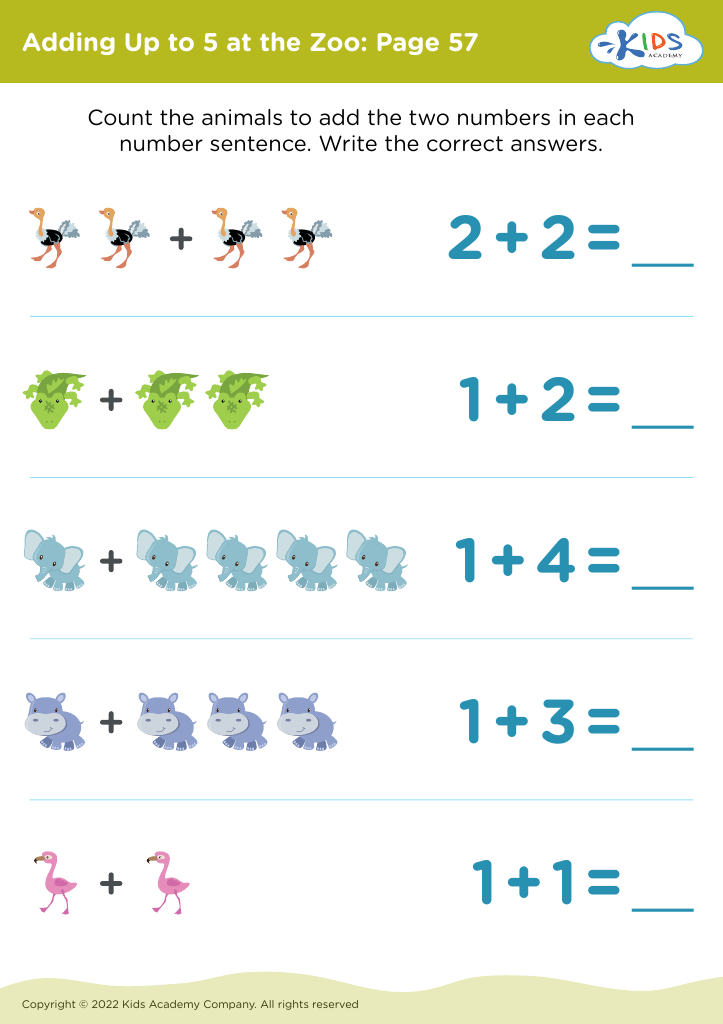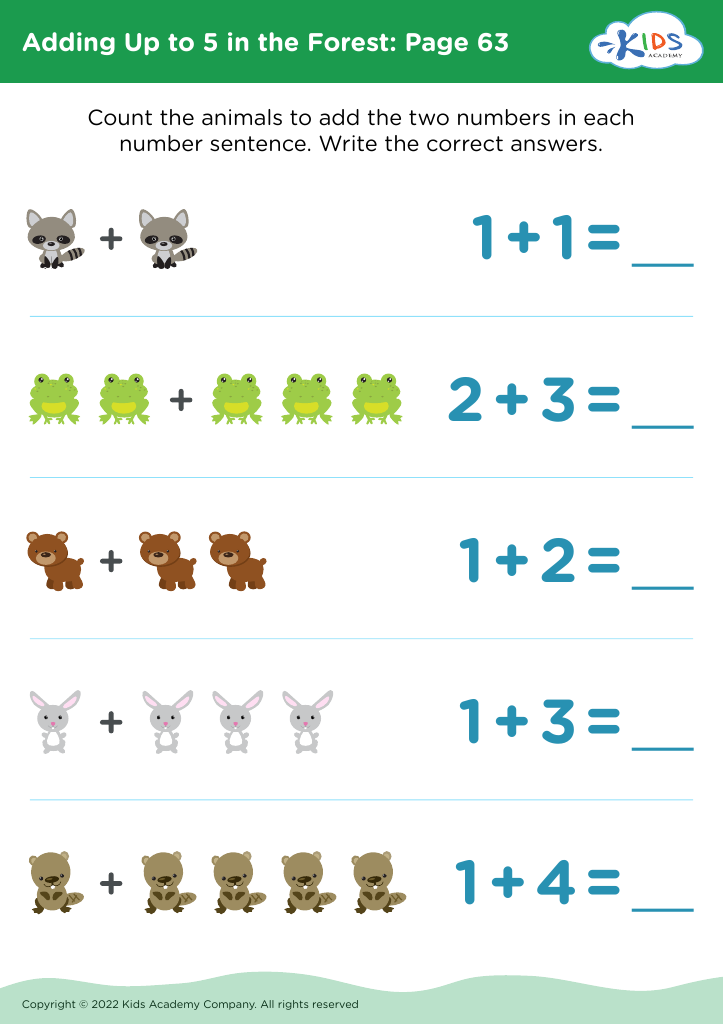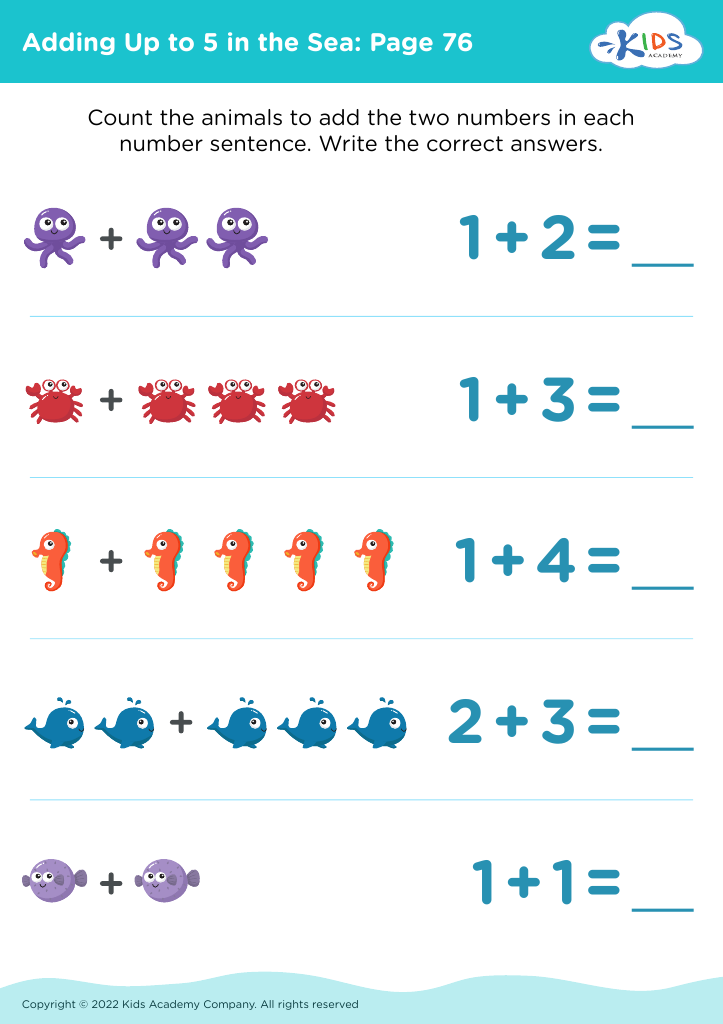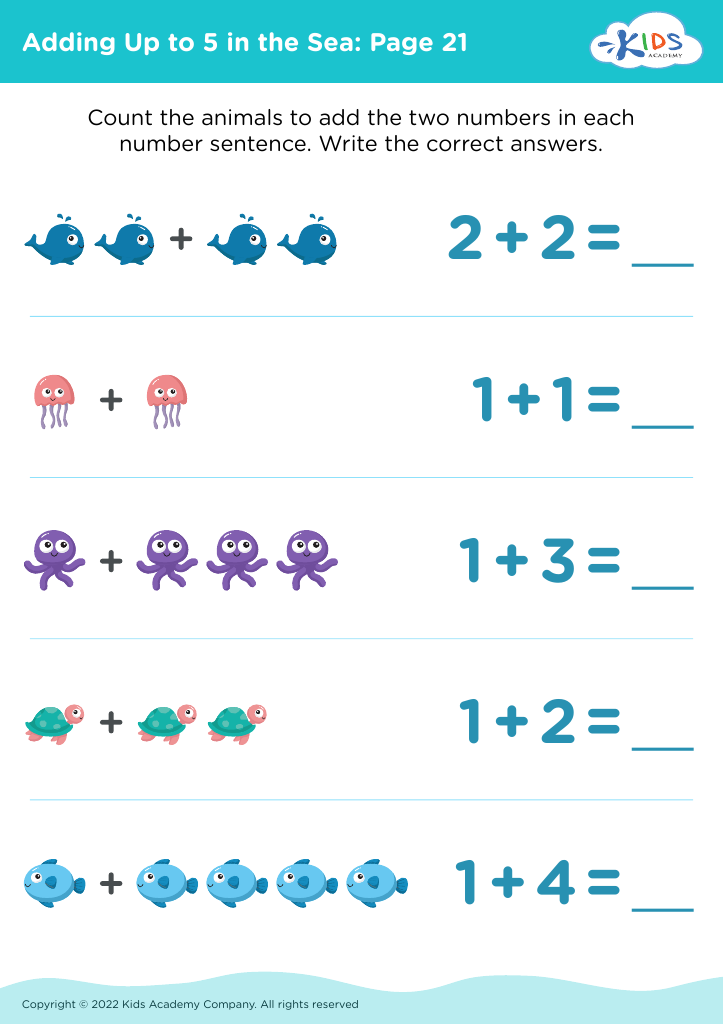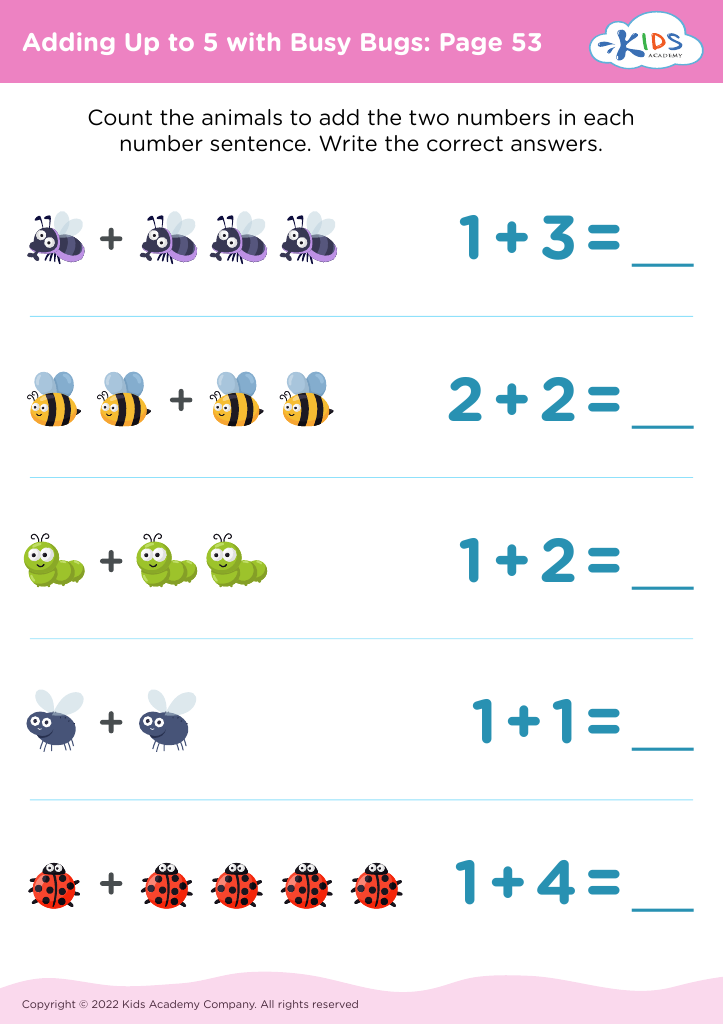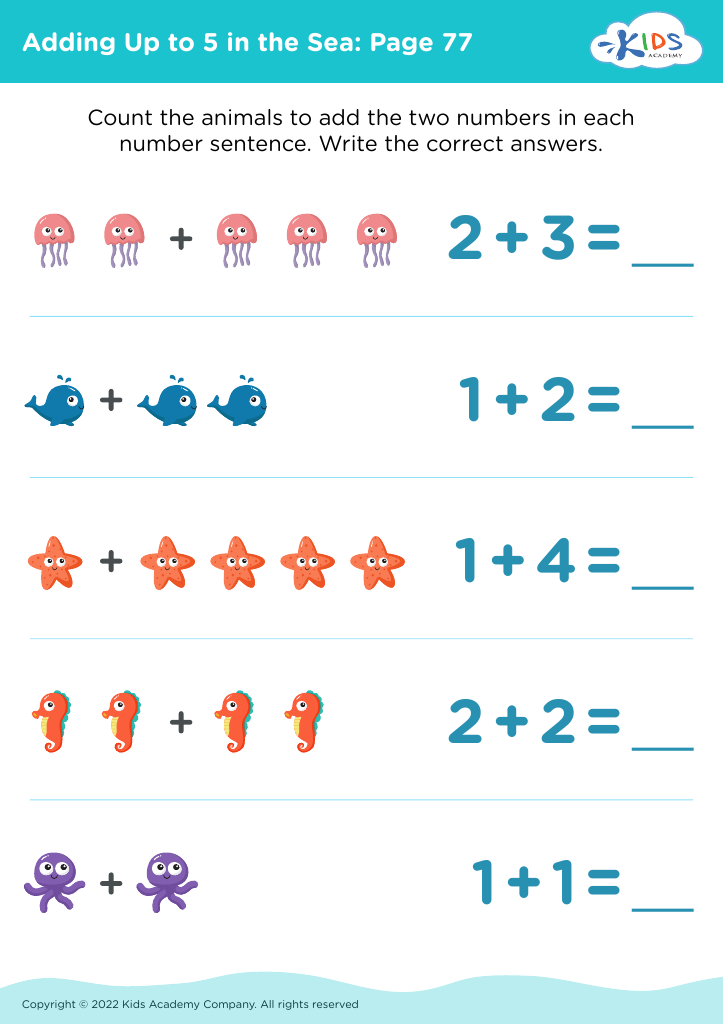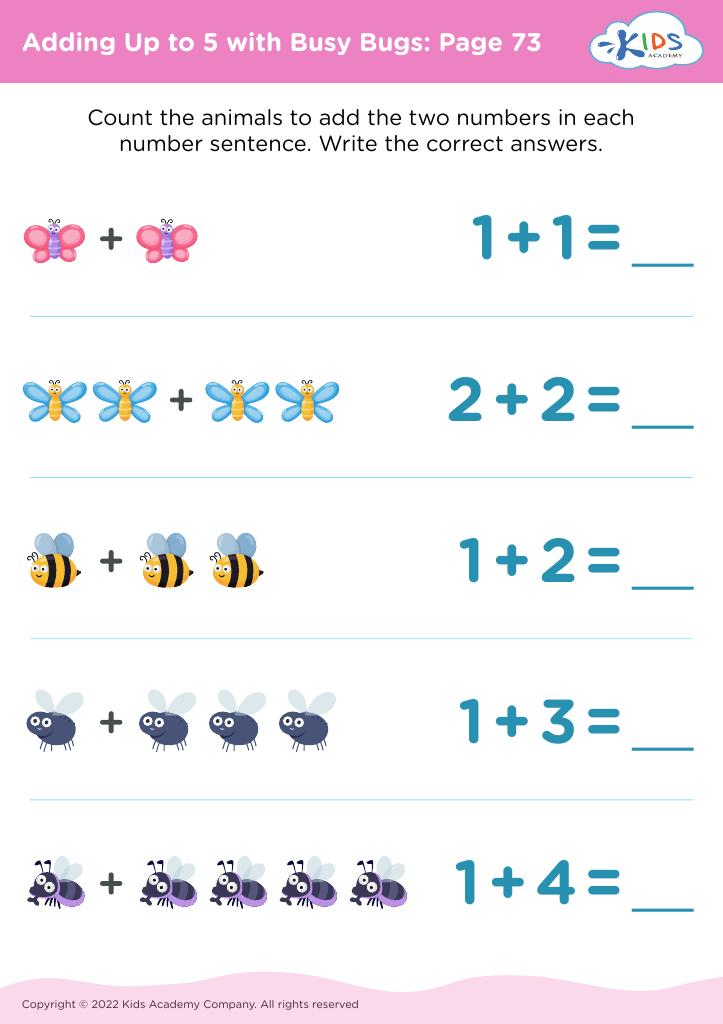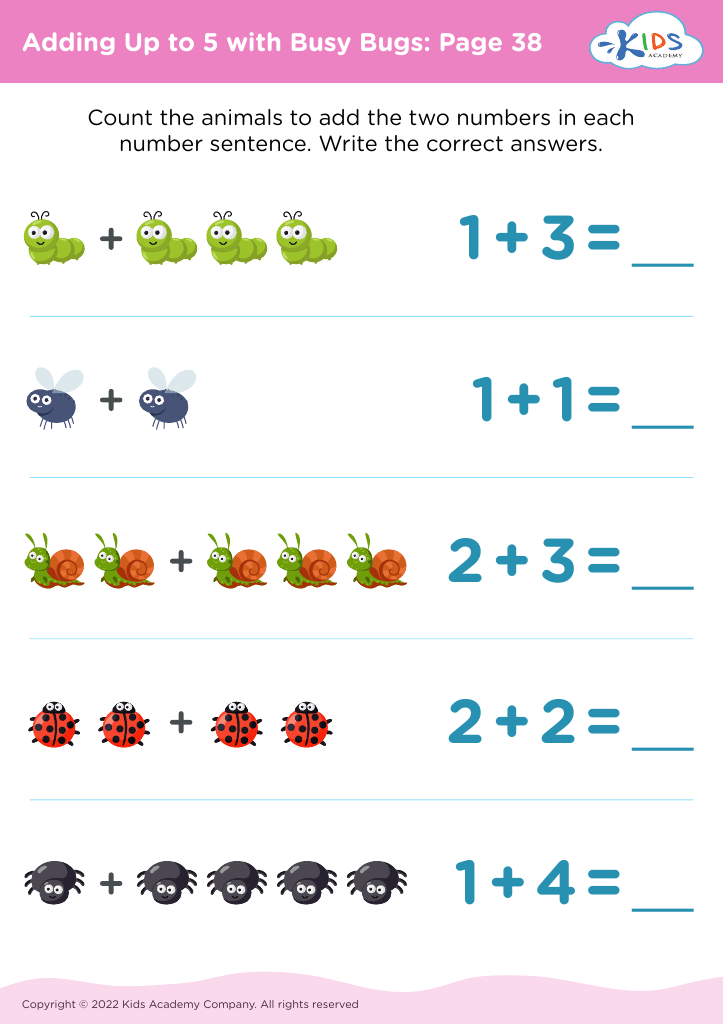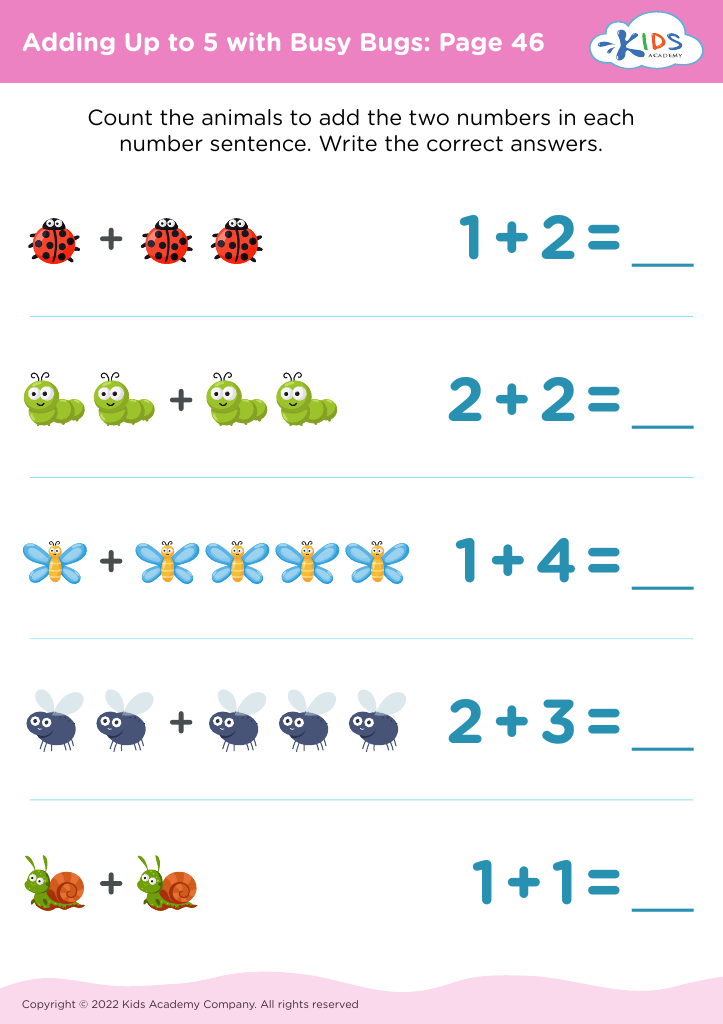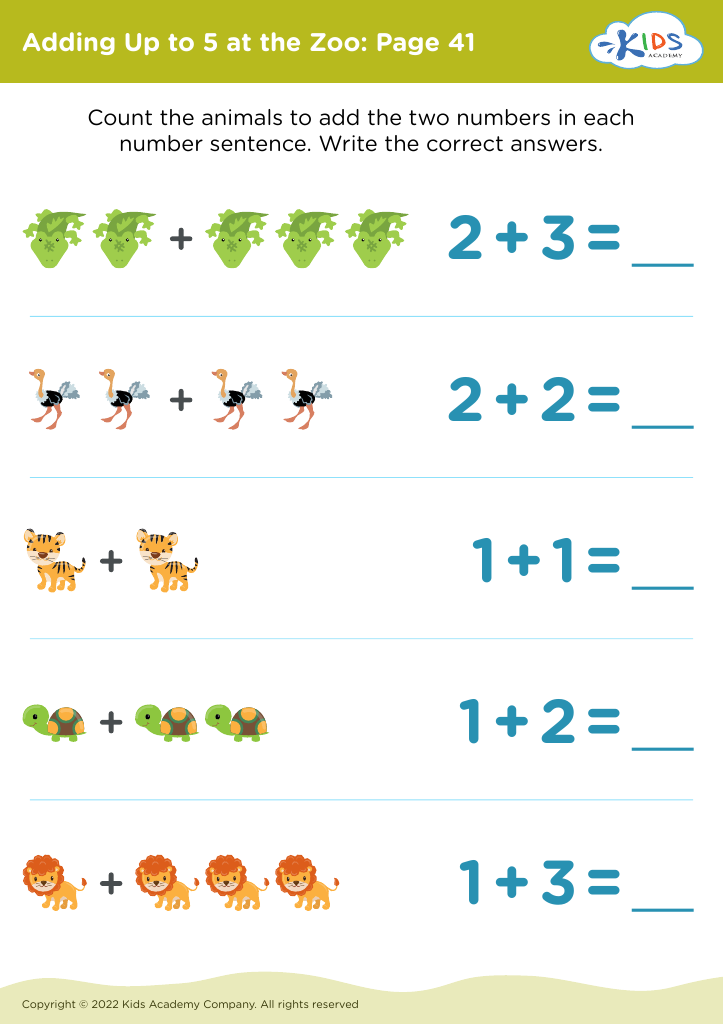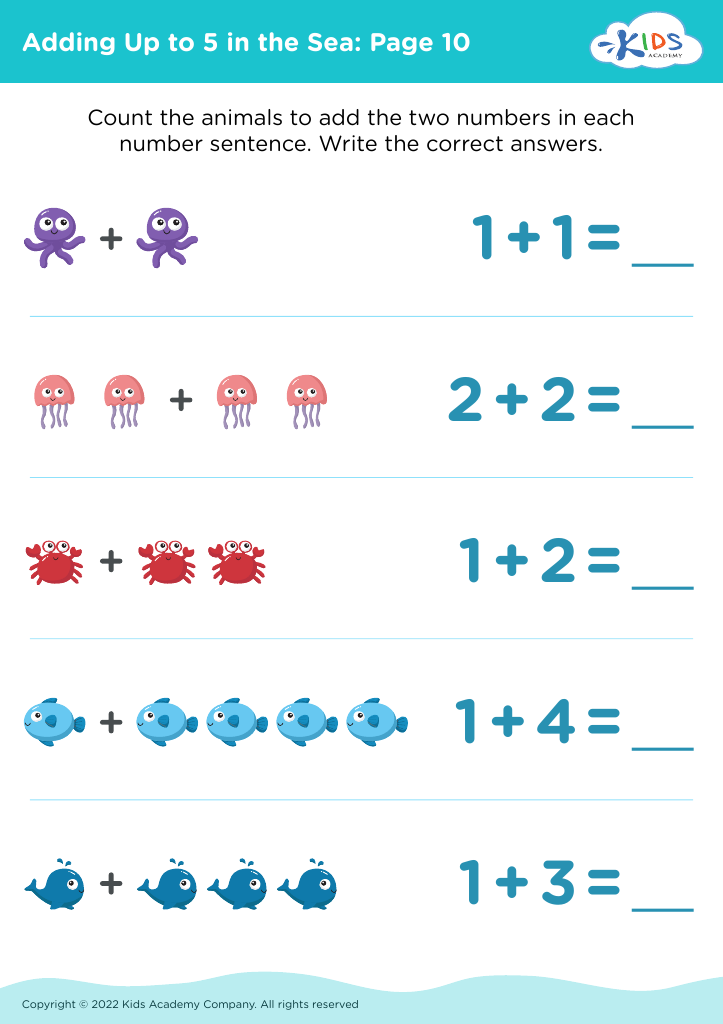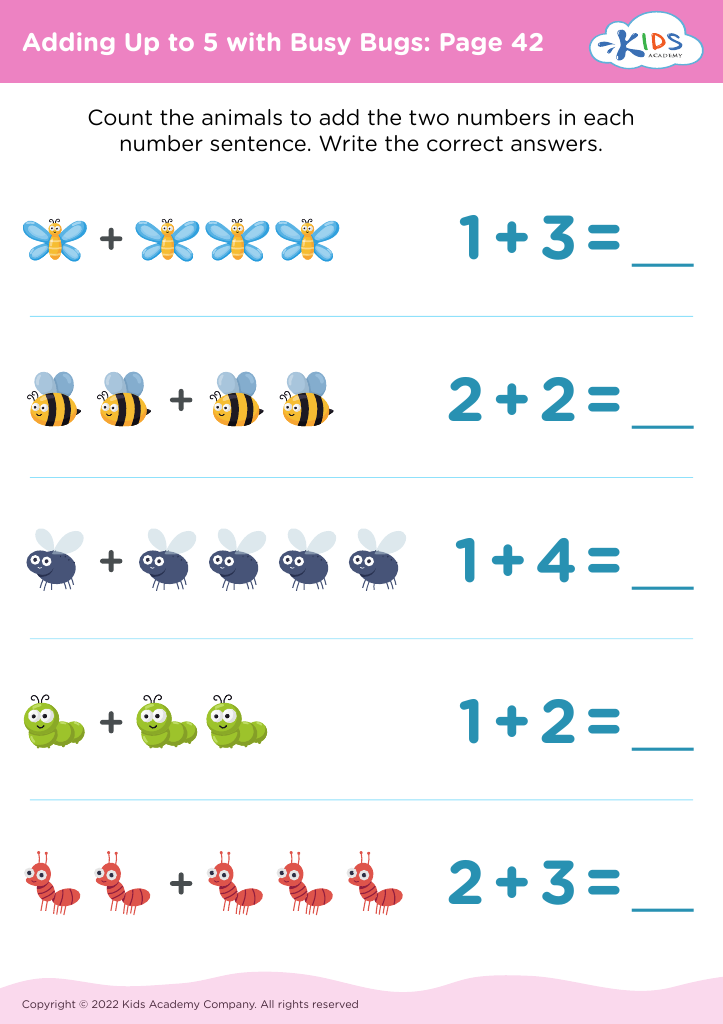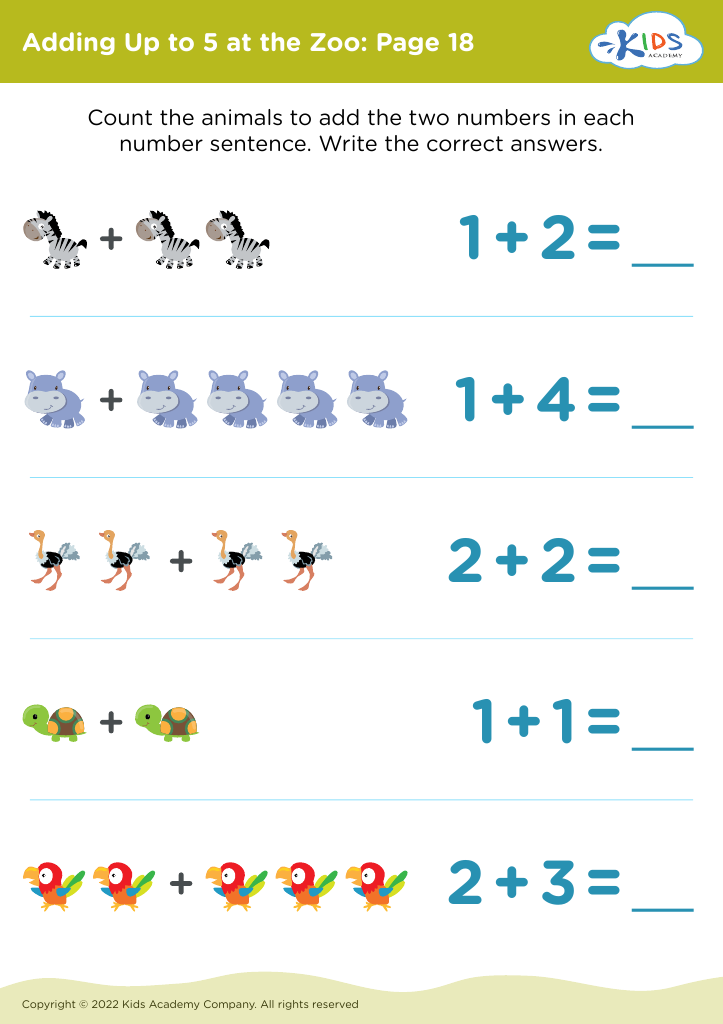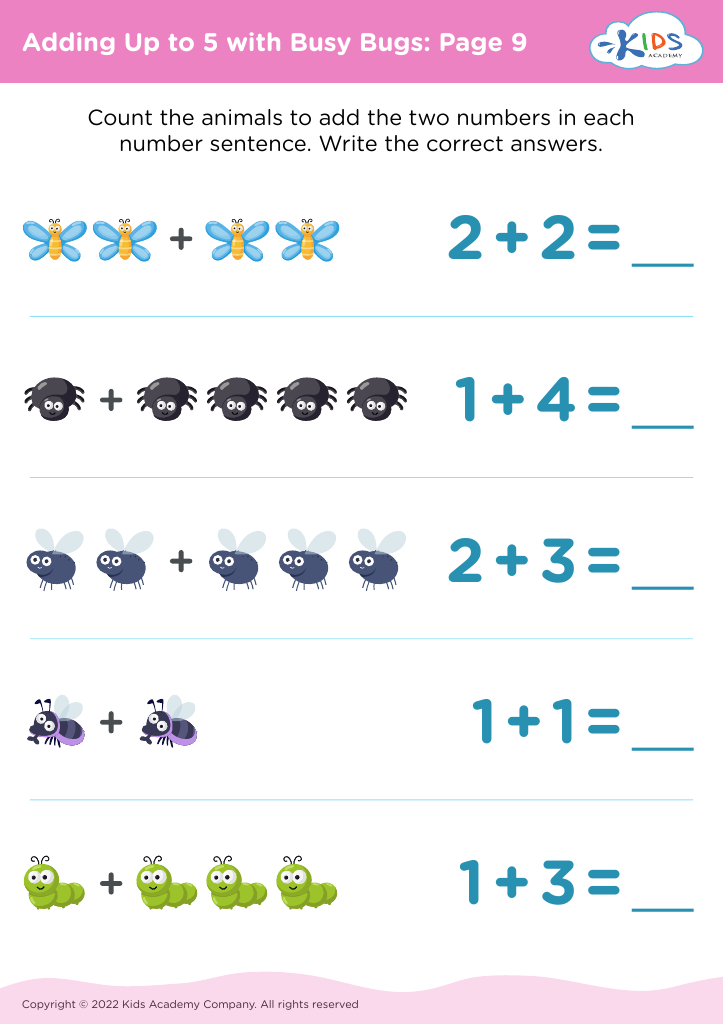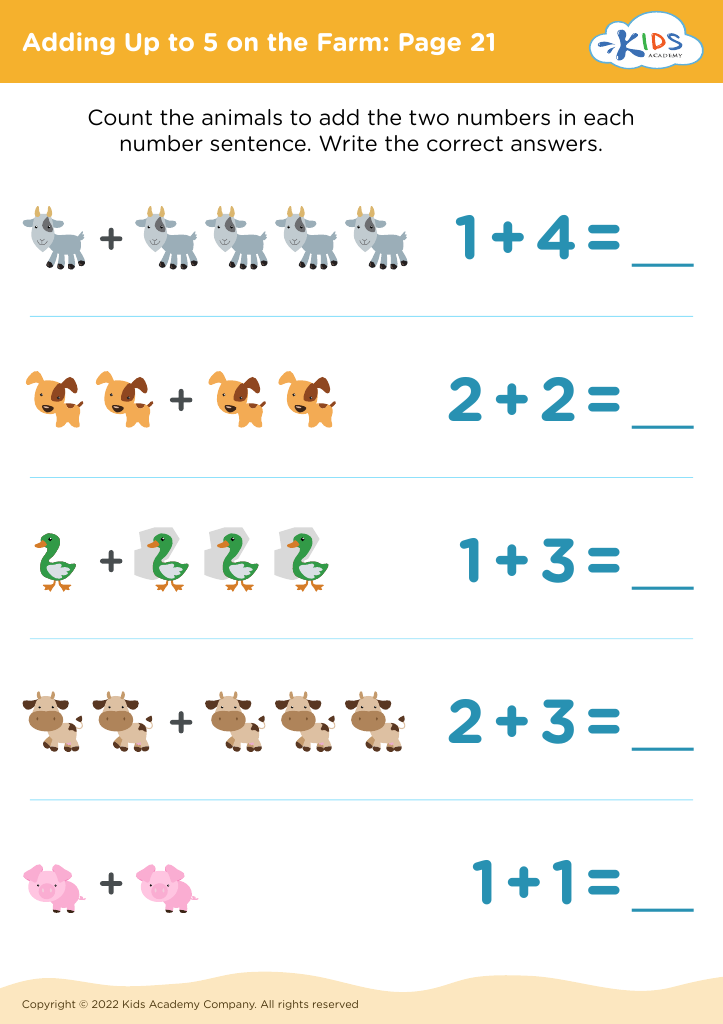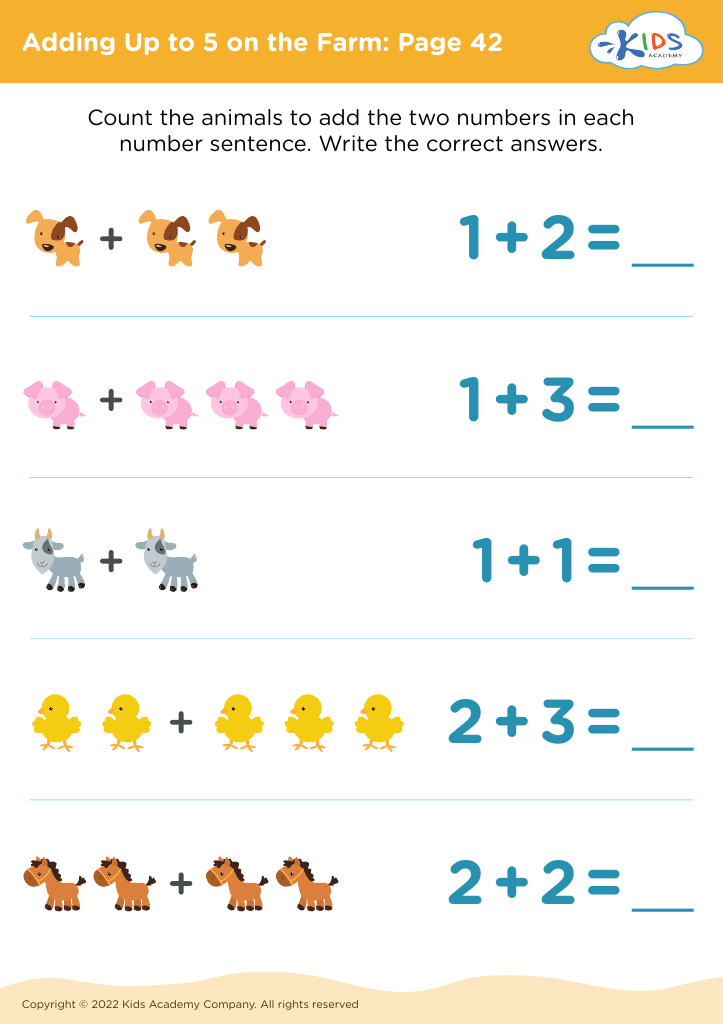Cognitive Development Addition Worksheets for Ages 4-6 - Page 2
101 filtered results
-
From - To
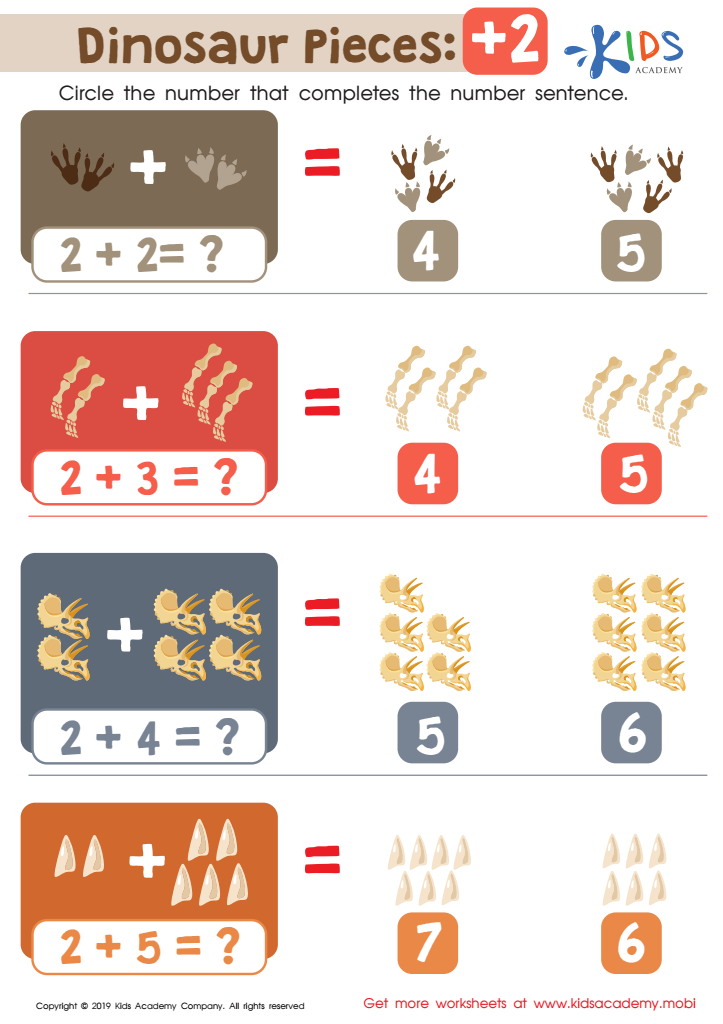

Dinosaur Pieces: +2 Worksheet
Cognitive development during the ages of 4 to 6 is a crucial period for children's overall growth, particularly regarding their ability to understand and perform addition. During these formative years, children's brains undergo rapid changes, making them more receptive to learning new concepts, including basic mathematics.
For parents and teachers, understanding the significance of cognitive development related to addition is essential for fostering a positive learning environment. This age group begins to grasp fundamental numerical concepts, such as counting, number recognition, and simple calculations. By supporting this development, parents and teachers can enhance children's problem-solving skills, logical thinking, and ability to make connections.
Additionally, strong mathematical foundations can build confidence and promote a love for learning. Encouraging early addition skills helps prepare children for future academic challenges, as mathematical proficiency is linked to success in various subjects.
Moreover, engaging in fun addition activities can strengthen the bond between parents and children, while educators can create dynamic lesson plans that cater to diverse learning styles. By prioritizing cognitive development in math, both parents and teachers can contribute significantly to a child's early educational journey, paving the way for lifelong learning and critical thinking.
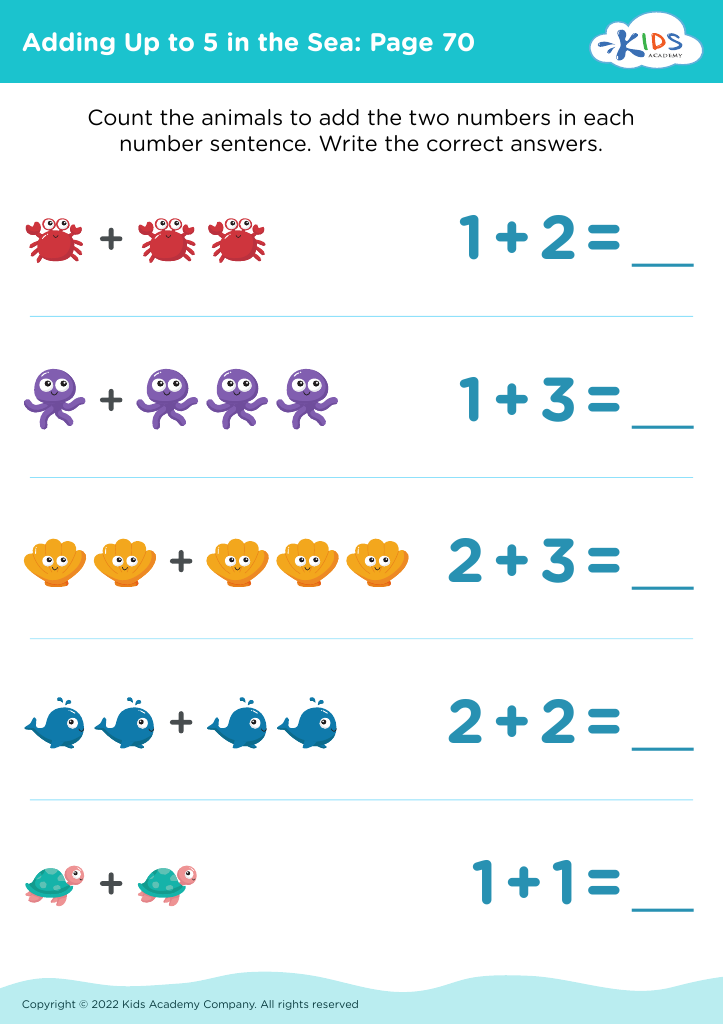

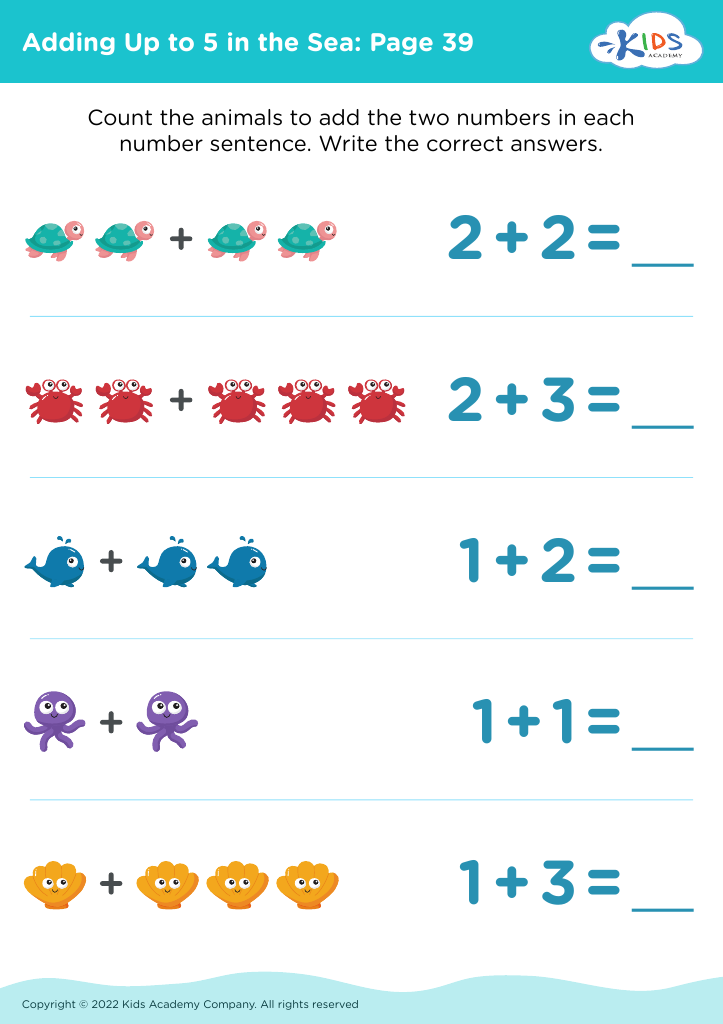
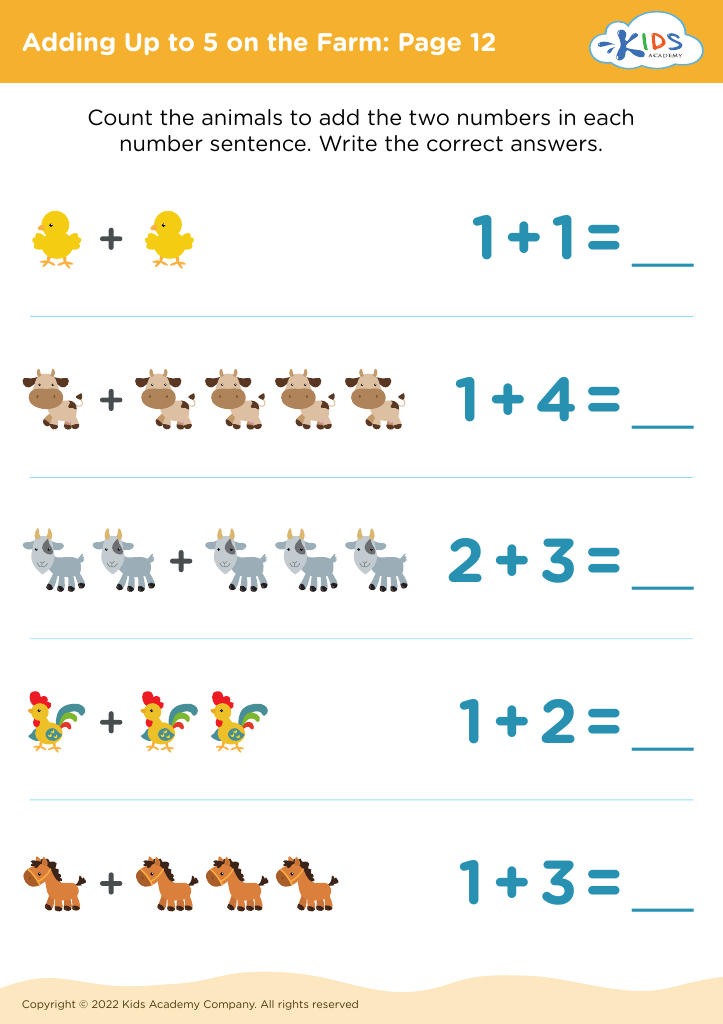
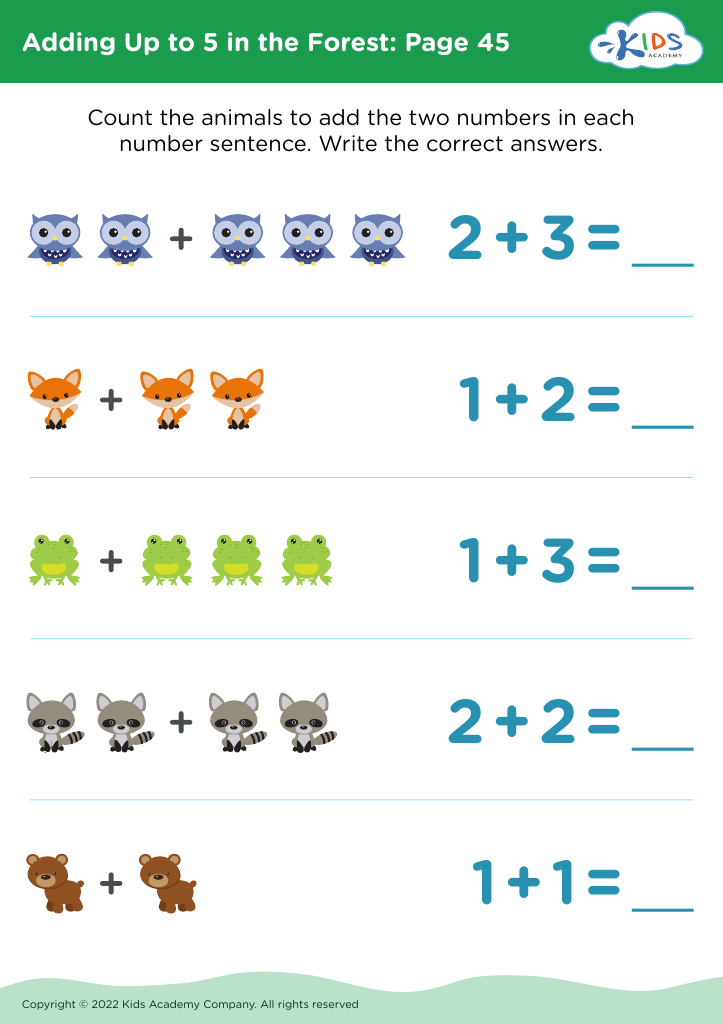
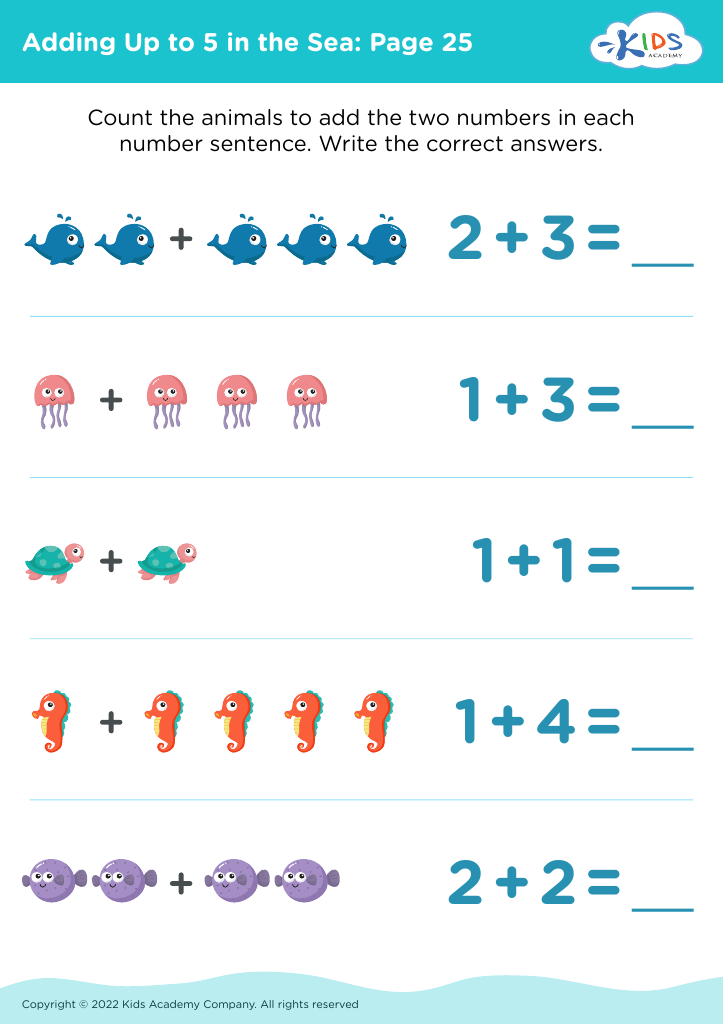

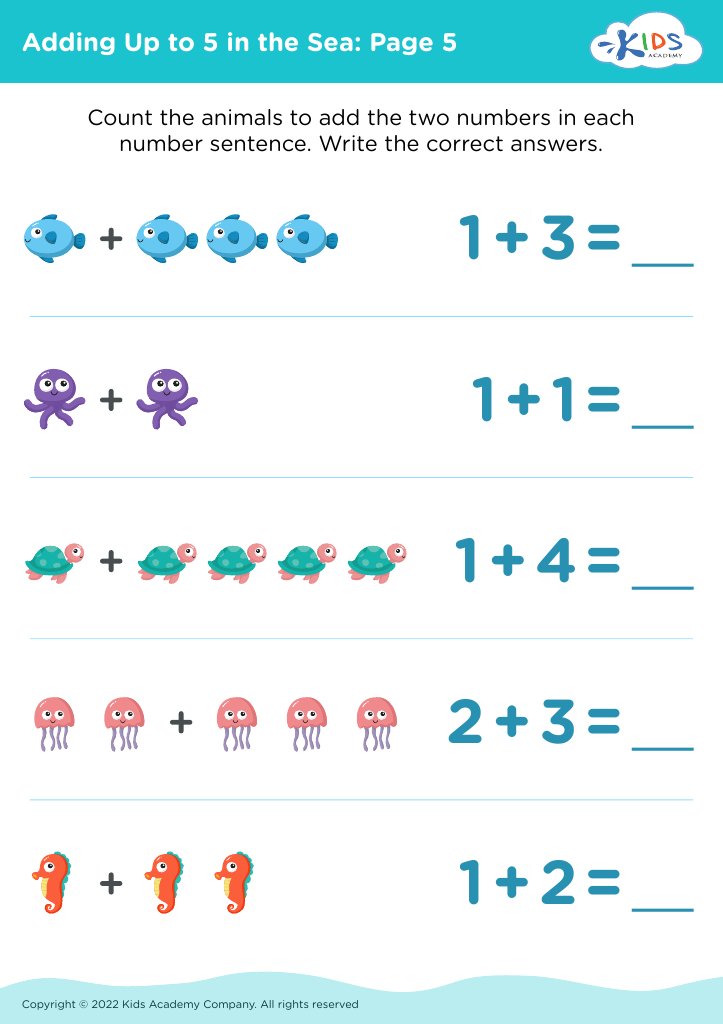
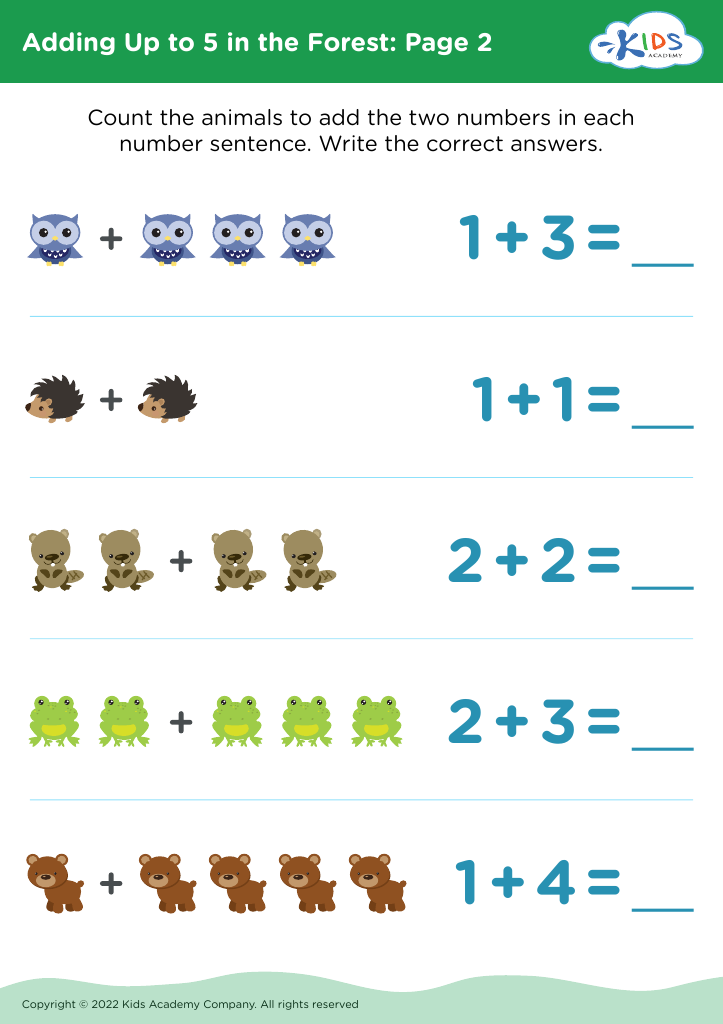
 Assign to My Students
Assign to My Students
